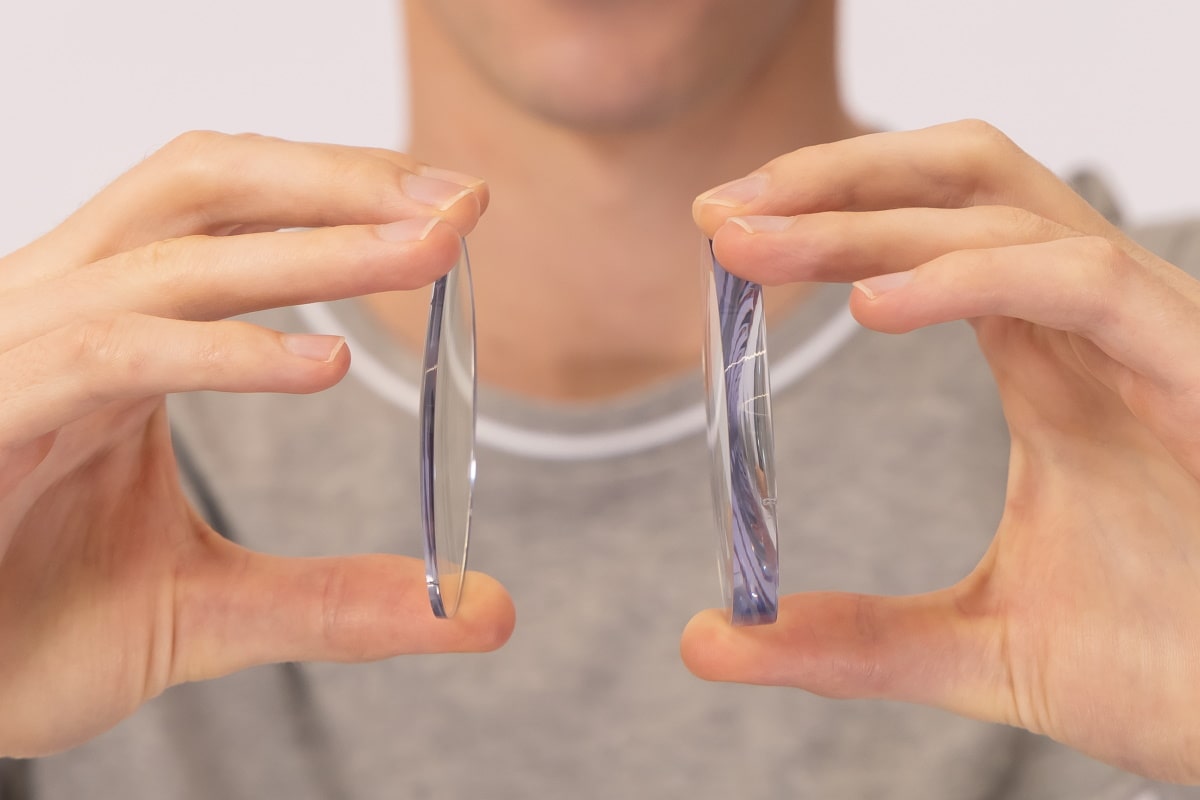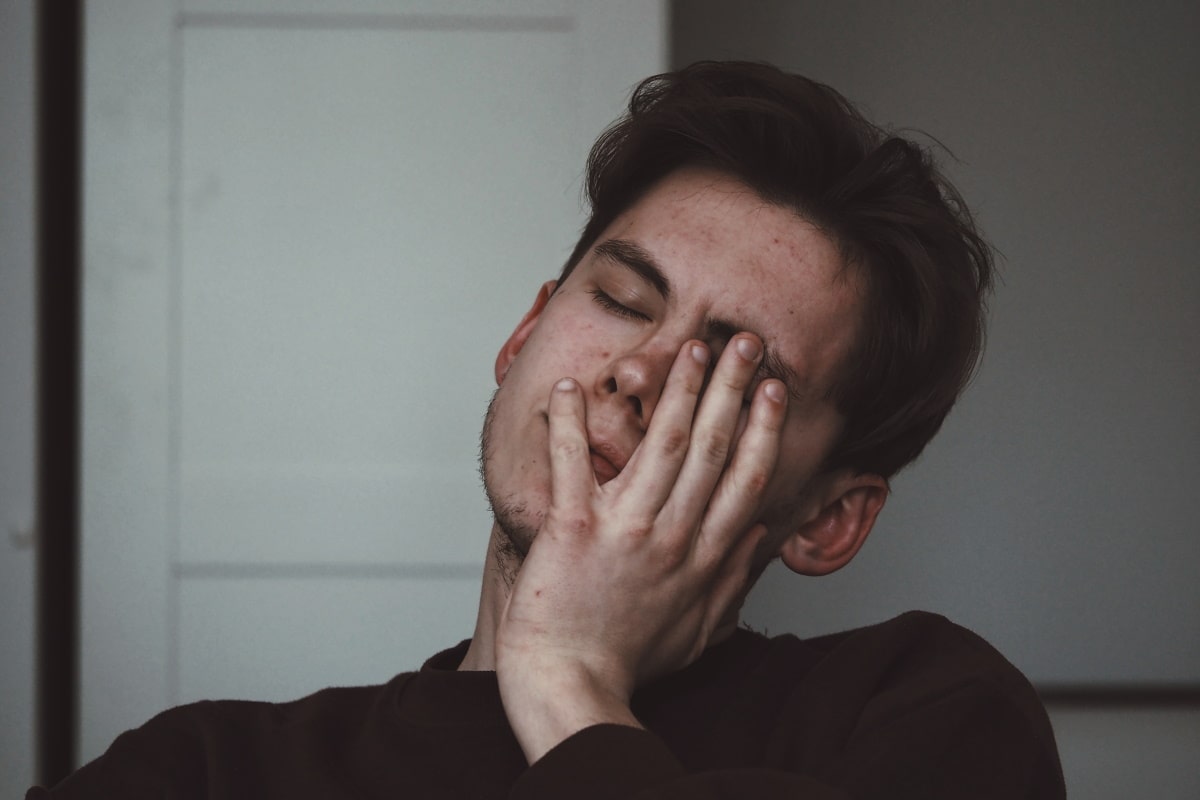Eye Strain: Why Your Eyes Feel Heavy & Tired
Are your eyes feeling tired and heavy? There’s a good chance you may be experiencing eye strain or eye fatigue, medically known as asthenopia. This is a very common condition these days that can be caused by many different things.
In this article, we’ll tackle the causes and symptoms of eye strain, and how you can prevent it.
What are the possible causes of my eye strain?
Eye strain can be caused by many different things, some of which are more serious than others. Some common causes of eye strain include:
- Outdated glasses
- Dry eyes or dehydration
- Fatigue (not getting enough sleep)
- Long periods of focusing
With our increased use and reliance on technology, digital eye strain is becoming more common across the board. Digital eye strain is also (unsurprisingly) sometimes known as computer vision syndrome.
Essentially, it’s when you experience eye discomfort and vision problems after prolonged screen time.
Some causes of computer vision syndrome include:
- Screen glare
- Poor posture
- Poor lighting (i.e. dim lighting)
- Uncorrected vision
- Sitting too close to the screen
What are the symptoms of eye strain?
Heavy and tired eyes can present in many ways. Some symptoms that you might experience include:
- Sore eyesThis soreness may be at the front of your eyes or the back of your eyes. Soreness at the front of your eyes can be due to dry eyes. The back of your eye being sore can be from your eye muscles becoming strained and fatigued.
- Blurry or double visionFatigue can affect your binocular vision, which stops your eyes from working together as well as they normally do. This can cause your vision to become blurred or doubled.
- Eye twitching (eyelid myokymia)This is caused by fatigue, stress, or stimulants (such as caffeine). This condition causes your eye muscles to twitch involuntarily.
- Burning, gritty, or watery eyesThis happens when your eyes become dried out. When we are concentrating, we blink less. This means that tears are not being spread across the front surface of the eye properly.
- Headaches and nauseaThis can be because your vision is blurred or because your eye muscles are becoming tired and sore.
- Difficulty concentratingYou might find that you need to reread words or sentences, or that you keep losing your place when reading.
- RednessFatigue can cause the blood vessels in your eyes to dilate. This causes your eyes to look red.
- Neck or shoulder painEye strain can cause an aching pain and stiffness in your neck and shoulder muscles.
How can you relieve eye strain?
The first step in relieving your eye strain is to understand its cause. If you can avoid or limit what is causing your eye strain, then it should get better on its own. Some things you can try to relieve eye strain include:
- Take a breakIf you notice eye strain while doing work on the computer, then take a break. This will allow your eyes to relax.
- Blink moreWhen you concentrate for long periods of time, your blinking rate reduces. This can cause your eyes to dry out and become fatigued. Reminding yourself to have a few blinks regularly will help relieve your eye strain.
- Use a blue light filterBlue light filtering glasses will calm your eyes and reduce feelings of fatigue. This is because blue light wavelengths can contribute to headaches and disturb sleep cycles.
- Use lubricating drops or artificial tearsThese drops will rehydrate your eyes and reduce feelings of dryness and irritation.
- Use a cool compressCold compresses will relax your muscles and relieve any soreness that you might feel due to eye strain.
7 helpful tips for preventing eye strain
Here are some things you can do to prevent eye strain:
1. Reduce your screen time
Spending too much time focusing on a screen is one of the biggest causes of eye strain. The easiest way to fix this is to spend less time using screens whenever possible. You can also decrease your brightness settings and apply a blue light filter on your computer.
2. Stay hydrated
Regularly drinking enough water will keep your eyes hydrated. This will prevent your eyes from drying out as easily and becoming fatigued.
3. Take regular breaks when doing near work or concentrative tasks
If you can’t reduce your screen time, then make sure that you are regularly taking breaks while doing near work. Many people like to follow the 20-20-20 rule to avoid eye strain (every 20 minutes, look at something 20 feet away for 20 seconds). Doing this will give your eyes time to relax.
4. Get enough sleep
It’s important to make sure that you are regularly getting enough sleep. Your body recovers and repairs itself while you are sleeping.
5. Get your eyes tested
If you notice that your eyes become fatigued very easily, then it is a good idea to get your eyes tested again. Changes in vision can cause your eyes to over-focus, which can cause them to become strained.
6. Eye exercises
Training your eyes to work better together will relieve eye strain. Head on to our article on eye exercises to learn more!
7. Protect your sleep with blue light glasses
Fatigue from screen use can also be prevented by wearing blue light glasses. These glasses filter out the harmful UV light that can contribute towards eye strain, headaches, and difficulty focusing. Wearing blue light glasses can also help you sleep better.
This is because exposure to blue light at night can trick your body into thinking it is daytime (in nature, we only get blue light from the sun). For more info, head on to our collection of blue light glasses.
When should you see a doctor?
It is important to have regular eye examinations to make sure that your glasses prescription is up to date and to prevent eye strain. You should see your doctor sooner if you have:
- Had a sudden change in vision
- Doubled or blurry vision all the time
- Difficulty seeing either up close or far away
- Persistent headaches, nausea, or dizziness
- Feelings of pressure or persistent pain inside your eyes
- Dry eyes that don’t get better with lubricants or artificial tears
- Severe eye strain or eye fatigue that doesn’t improve
If you are in doubt, it is best to see your optometrist. They will be able to assess your vision and ocular health and recommend ways to avoid eye strain. There are many different causes of fatigue and it can be difficult to pinpoint the cause on your own.
In most cases of eye strain, adjusting your lifestyle habits or getting new glasses will make your eyes feel better. If these do not help, then you should see your optometrist.

Written by:
Dr. Jordan Marr











